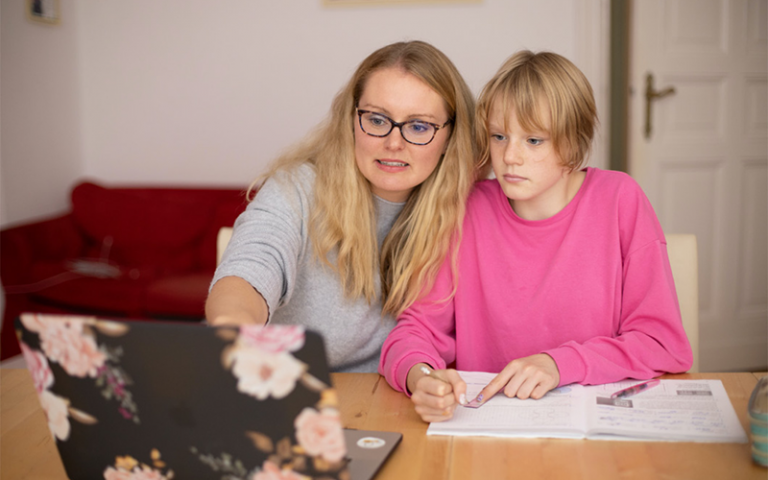IPPO review outlines recommendations for the future of online learning
22 October 2021
A systemic review of emergency remote learning strategies by the International Public Policy Observatory (IPPO) highlights issues of equity, regarding both access to and quality of digital resources, for online learning in secondary schools.

More than 200,000 school children in England are estimated to have been off school for COVID-related reasons at the end of September, and with additional concerns over the number of teachers currently isolating, the question of how best to conduct remote emergency learning has been of critical importance in this new academic year.
To gain insight into how emergency remote education was experienced by secondary school students, parents and educators, a systematic review was conducted by the UCL EPPI Centre, a partner of IPPO, to collate the relevant research evidence. The review collected evidence from 81 studies across 38 countries, and focused on four core questions:
- How was technology used and was it successful?
- How was student and parent engagement affected?
- How was student assessment managed?
- What online and ‘blended’ learning approaches could continue to be used post-pandemic?
The authors include a series of conclusions and policy recommendations for what the future of secondary-age education could (and should) look like in light of the dramatic expansion of remote/online learning tools and techniques during the pandemic.
Priority recommendations
- We expect the accelerated use of ‘asynchronous’ (non-live) learning techniques during COVID-19 to continue beyond the pandemic, including through the increased use of recorded lessons. However, our analysis suggests that for teachers making a rapid shift from classroom to emergency remote teaching, live ‘hybrid’ online lessons remain the most effective approach.
- Increased professional development for teachers on how to teach with digital technologies in blended, online and hybrid contexts, including online strategies for students with SEND, is vital. Their ongoing professional development should be updated in line with the latest technological advances.
Online tools and techniques
- Online teaching materials developed during COVID-19 are a sustainable resource that can be reused and developed further in the future. This review refers to many local examples of tools and techniques that were developed by teachers during lockdown.
- Both educational videos (especially teacher-made) and online quizzes should be integrated within normal in-person schooling to consolidate understanding and ensure students have a sustainable workload.
- Changes to policy regarding teacher contact time may need to reflect the increased amount of time it takes to create rich digital resources.
Enhancing student engagement
- Some students enjoyed the increased opportunities to study and problem-solve independently: for example, being set a week’s work on Monday and then scheduling their own timetable. One study found that chemistry students liked conducting experiments at home using everyday materials.
- ‘Scaffolding’ (i.e., not delivering all learning materials at once), varying the learning tasks and providing engaging, easy-to-understand instructions all help prevent students from feeling overwhelmed and confused when being taught outside the classroom.
- Peer collaboration is vitally important when students are learning remotely, as it helps to mitigate against social isolation and is critical for student engagement. Well-managed peer-to-peer interaction should be a key plank of future crisis response strategies.
- Technology choices should be governed by students’ ability to reliably access and use the tools in question – this will, of course, vary geographically, between schools, and even within a class.
Parent engagement
- It is critical that the improved communication between schools and parents seen during the pandemic continues and is actively built into any future remote learning strategies as a means of reducing barriers.
The full report can be accessed on the International Public Policy Observatory website.
 Close
Close

